Advanced Training Course in Molecular Bioengineering 2025
Biomolecular interactions modelling: in silico and experimental approaches for molecular self-assembly and medicine
Welcome
The Advanced Training Course in Molecular Bioengineering is designed to provide a training platform for educating the next generation of leaders in Molecular Bioengineering, a rapidly growing field that explores the most recent advances in chemical, biological, and engineering sciences to develop advanced molecular-level solutions to complex medical problems. This year, on its 3rd edition, the course focuses on “Biomolecular Interactions Modelling: in silico and experimental approaches for molecular self-assembly and Medicine”.
Peptides and proteins mediate many physiological and bioengineering-relevant phenomena, playing a crucial role in drug design and discovery, whether as therapeutic or delivery agents. Also, peptide epitopes play a key role in driving communication between cells and their extracellular matrix, offering opportunities for controlling cell adhesion, differentiation, immunomodulation and matrix turnover. A deeper understanding behind the biophysical interactions responsible for these functions offers the possibility to improve biomolecular affinity and biomaterials’ fabrication reproducibility, which can lead to the fabrication of high-precision biological scaffolds, smart/functional medical devices, sustainable nanoelectronics and biosensors.
This Course will cover the fundamentals of biophysical techniques relevant for the in silico and experimental assessment of molecular interactions, including three-dimensional structure, self-assembling capability and solubility predictions of peptides and proteins, being relevant for a range of biomedical applications, such as drug discovery, biosensing, functional biomaterials design, tissue engineering, among others.
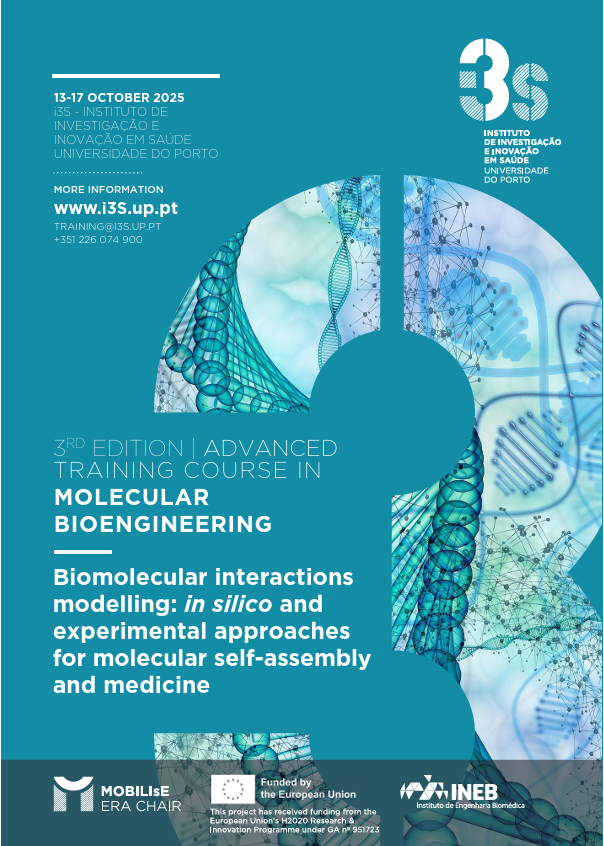
Venue
i3S – Instituto de Investigação e Inovação em Saúde
Rua Alfredo Allen, 208 | 4200-135 Porto, Portugal
Date
13-17 October 2025
Organising Committee
Helena Azevedo, Carlos Redondo, Mariana Simões – i3S
Course duration
Complete course: Monday – Friday (whole day) | 27.5 hours
Theoretical part only: Monday – Thursday (mornings) | 8.5 hours
Course language
English
Requirements
Laptop and labcoat for the practical classes
Target audience
The course is designed for those interested in modelling the structure and interactions between peptides and proteins in solution, the science and enabling technologies supporting the advancements in the area, and their biomedical applications (drug discovery and formulation, biomaterials design, biosensing, among others).
It can be attended by:
– Postgraduate students: Master’s and PhD students enrolled in Biomedical Engineering or Bioengineering master’s and doctoral programmes, or related areas.
– Researchers working on peptide/protein and biomolecular interactions in general for different biomedical applications.
– Industrial professionals developing biomaterials, drugs, and biomedical devices.
Open to internal and external members.
Speakers and Instructors
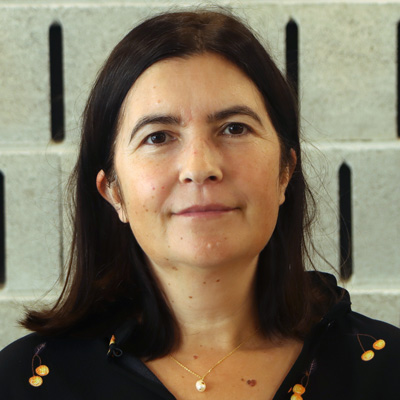
Helena Azevedo
i3S, University of Porto, Portugal

Helena Azevedo
i3S, University of Porto, Portugal
She is a Fellow of the Royal Society of Chemistry (FRSC) since 2017 and was appointed Member of the Materials Chemistry Division Council (RSC) from 2021 to 2024. In 2021, she became Member of the Editorial Advisory Board of Journal Peptide Science (Wiley) and has been a Member of the Advisory Board of the RSC journal Molecular Systems Design & Engineering since 2016.
Her work focuses on self-assembling biomaterial platforms for cell culture, drug delivery, regenerative medicine, and biosensing. She is the author of >100 publications, including papers in Science, Nat Chem, Nat Comm, Adv Funct Mater, Nano Lett, Adv Health Mater, and has edited 3 books on natural-based biomaterials, self-assembling biomaterials and soft matter for biomedical applications.
ORCID >>
Personal Page >>
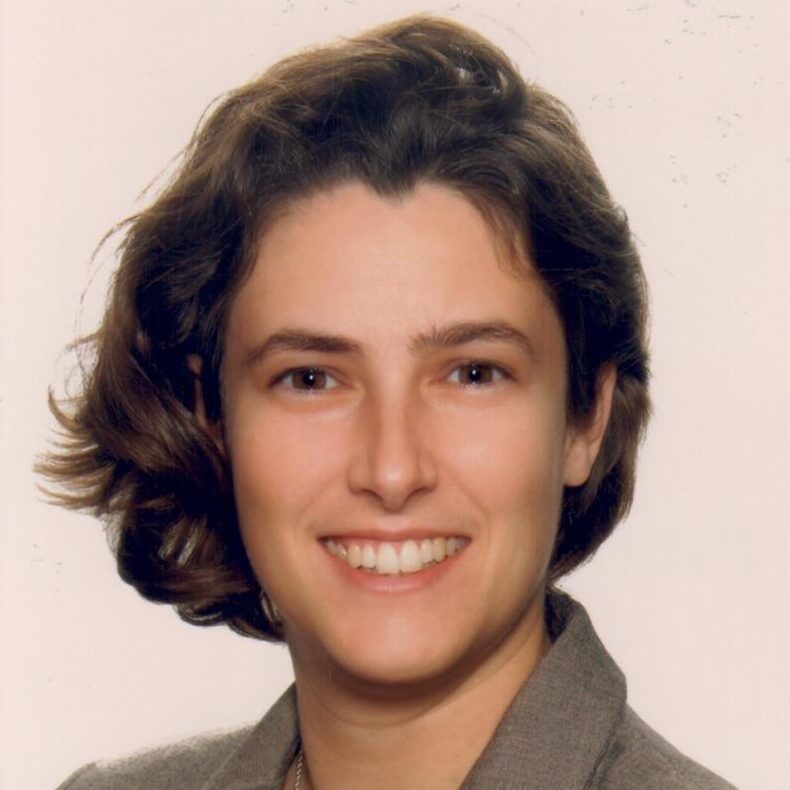
Daniela Kalafatović
University of Rijeka, Croatia

Daniela Kalafatović
University of Rijeka, Croatia
Previously, she was employed at the Faculty of Biotechnology and Drug Development at the University of Rijeka, where she served as Head of the Medicinal Chemistry Division from 2021 to 2024. Daniela received her Ph.D. degree in chemistry from the University of Strathclyde in 2015. After the PhD, she was a Research Associate at the Advanced Science Research Centre, City University New York, Nanoscience Initiative. In 2016, she joined the Institute of Research in Biomedicine in Barcelona as a Marie-Curie co-funded postdoctoral fellow. She began her independent career as Assistant Professor in 2019 at the University of Rijeka.
Daniela is the holder of a major national project for young researchers, the Croatian Science Foundation starting grant entitled “Design of short catalytic peptides and peptide assemblies” (DeShPet, UIP-2019-04-7999) and since 2024 she is Action Chair of the COST Action “Searching for nanostructured or pore forming peptides for therapy” (CA23111) that has more than 400 participants from over 40 countries. She is also leading several university-founded projects and has published more than 27 articles, with the recent Nature Machine Intelligence being particularly noteworthy.
Daniela Kalafatovic is a member of the Royal Society of Chemistry, the American Chemical Society, the European Peptide Society, and the Croatian Chemical Society.
ORCID >>
Personal page >>

Frederico Ferreira-da-Silva
i3S, IBMC - University of Porto, Portugal

Frederico Ferreira-da-Silva
i3S, IBMC - University of Porto, Portugal
Frederico got his PhD from the University of Porto in 2006, studying the structure and intracellular targeting of proteins, using a multidisciplinary approach covering diverse fields such as Yeast cell biology, biochemistry and protein crystallography. Back in 2005, he was involved in the set-up of a Scientific Platform dedicated to the production and purification of recombinant proteins, which later broadened its scope, developing work in Molecular Biophysics. He has been actively involved in the development of pan-European communities in the fields of protein production and molecular biophysics. Frederico coordinates several postgraduate activities, such as an EMBO practical course running every other year focusing on the study of molecular interactions and a yearly practical course on protein expression, purification and characterisation of the MCBiology PhD program. He coordinates the Training and Human Capacity Development section of the Association of Resources for Biophysical Research in Europe.
ORCID >>
Personal page >>
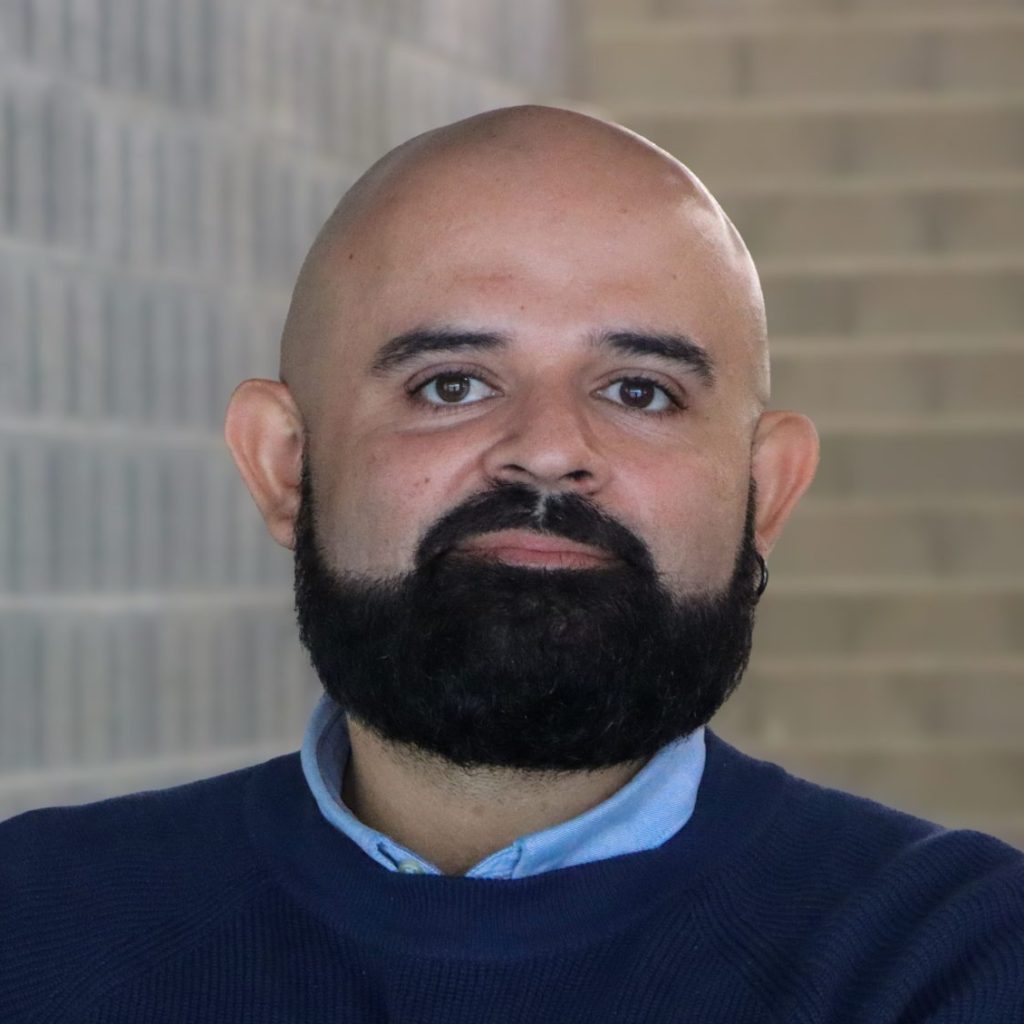
Carlos Redondo
i3S, University of Porto, Portugal

Carlos Redondo
i3S, University of Porto, Portugal
Carlos received his BSc in Chemistry and MSc in Supramolecular Chemistry from the University of Costa Rica (UCR), and then he received his PhD in Medical Engineering from Queen Mary University of London (QMUL, 2020). He has acted as a researcher in nanobiomaterials, as Scientific Adviser and R&D Director for the Ministry of Science, Innovation, Technology and Telecommunications of Costa Rica (MICITT). Currently, he develops responsive nanobiomaterials based on self-assembling peptides for targeted diagnosis/therapies. He has extensive experience in bioengineering peptide- and protein-based self-assembling biomaterials, and he is also a Member of the Royal Society of Chemistry.
ORCID >>
Personal page >>
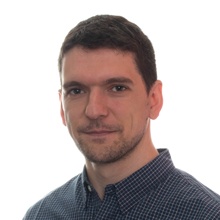
António Ribeiro
LAQV Requimte FCUP, Portugal

António Ribeiro
LAQV Requimte FCUP, Portugal
Antonio began his academic career in 2008 in the Computational Chemistry group of FCUP under the supervision of Prof Maria João Ramos and Prof Pedro Fernandes. His research centered on employing computational chemistry tools to investigate enzyme catalysis and drug design. His PhD work was in collaboration with the group of Prof Nino Russo, at the University of Calabria, Italy. Following his PhD, he spent three months with Prof Hajime Hirao’s group at the Nanyang Technological University in Singapore.
In June 2016, he joined the group of Prof Dame Janet Thornton at the EMBL-EBI in Cambridge, UK, where he extended the scope of his research to bioinformatics. There, he developed the M-CSA (Mechanism and Catalytic Site Atlas), a unique database of enzyme mechanisms and catalytic sites, which has more than 30 000 unique visitors yearly. At the EBI, Antonio also studied the evolution of enzymes and created a new software, called EzMechanism that uses the knowledge stored in M-CSA to automatically propose enzyme mechanisms for a given enzyme active sites and reactions.
In July 2023, Antonio started an Auxiliary Researcher position funded by the FCT CEEC program, based at LAQV-REQUIMTE and FCUP. His current project focuses on developing new computational tools to study enzyme function and evolution, by combining the fields of computational chemistry and bioinformatics and leveraging his expertise in both areas. Alongside his research duties, he also supervises junior research students and teaches in the Computational Biochemistry, Molecular Bioinformatics, and Functional Omics graduate courses at FCUP.
ORCID >>
Personal page >>
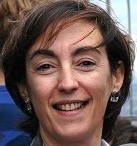
Margarida Bastos
CIQUP - Research Center in Chemistry (Centro de Investigação em Química da Universidade do Porto) , Portugal

Margarida Bastos
CIQUP - Research Center in Chemistry (Centro de Investigação em Química da Universidade do Porto) , Portugal
Calorimetry is Margarida's main expertise, but she has also been using other biophysical techniques, such as small angle X-ray diffraction (SAXD), neutron scattering, fluorescence spectroscopy (static and time resolved), Circular Dichroism (CD), microscopy (SEM, TEM, and confocal), having the study of antimicrobial peptide/membrane interactions as main research interest. Besides this, she also applies calorimetry to the thermodynamic characterisation of proteins and protein-ligand interactions, polymer/surfactant interactions, solution behaviour of hydrophobic and hydrophilic compounds, and interactions involving ionic liquids. Margarida Bastos earned her PhD in Thermochemistry from Lund University, Sweden, in 1991, and she introduced Biocalorimetry in Portugal thereafter. She was the co-leader of WG4 (Optimization of data quality) of the COST action MOBIEU (Molecular Biophysics in Europe), an effort that resulted in several methodology papers in a special number of European Biophysics Journal in 2021. She is a member of ARBRE (Association of Resources for Biophysics in Europe). In 2016 she was the Editor of the book “Biocalorimetry: Foundations and Contemporary Approaches”, from Taylor & Francis. In 2023 she published with other international ITC experts a comprehensive Isothermal Titration Calorimetry paper on Nature Reviews Methods Primers.
webpage>>
ORCID >>

William Zamora
University of Costa Rica, Costa Rica

William Zamora
University of Costa Rica, Costa Rica
William has recently been selected as a fellow of the Postdoctoral Network in Artificial Intelligence (Postdoc-NeT-AI), an initiative supported by the German Federal Ministry of Education and Research (BMBF) and the German Academic Exchange Service (DAAD), where they are developing machine learning-based tools for drug design. Additionally, he has been a fellow of the Coimbra Group Universities of the European Union, through its program for Young Professors and Researchers from Latin American Universities.
His research focuses on Computational Biology, Chemoinformatics, Chemical Physics, and Artificial Intelligence, with an emphasis on early-stage drug discovery and development. His work encompasses virtual screening, the prediction of physicochemical properties for small molecules and biomolecules, the development of computational biology tools, and the design of novel antimicrobials based on small molecules and antimicrobial peptides. He also conducts research in environmental chemistry and promotes the development of alternative in silico methods to reduce animal testing.
ORCID >>
Cbio3 Laboratory webpage >>
Laboratory of Computational Toxicology & Artificial Intelligence: webpage >>
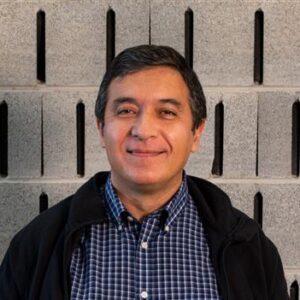
Pedro Pereira
i3S, University of Porto, Portugal

Pedro Pereira
i3S, University of Porto, Portugal
Pedro Pereira graduated in Biochemistry from the University of Porto in 1993. He was a PhD student of ‘Programa Gulbenkian de Doutoramento em Biologia e Medicina’ from 1993 to 1999, and a PhD fellow at the Max-Planck-Institut für Biochemie (Martinsried, Germany) from 1994 to 1999 (Supervisor: Prof. Dr. Dr. hc mult. Robert Huber), gaining his PhD in Biomedical Sciences (Biochemistry) from the University of Porto in 1999. Pedro Pereira was a FEBS Long-Term (1999-2000) and FCT (2000-2001) post-doctoral fellow at Institut de Biologia Molecular de Barcelona (IBMB-CSIC, Barcelona, Spain), and an Auxiliary Researcher (2002-2009) at Institute for Molecular and Cell Biology, Portugal, where he became a Principal Investigator (2009-2022). Since 2013, Pedro has been a Principal Investigator at i3S. Pedro’s research group uses X-ray crystallography, in combination with other biophysical and biochemical approaches, to unveil two distinct biological problems: the molecular determinants of specific thrombin recognition and inhibition by natural anticoagulants from haematophagous animals, and the mechanism of action of unique enzymes from human pathogens, which are potential drug targets for therapeutic intervention.
ORCID >>
Personal page >>
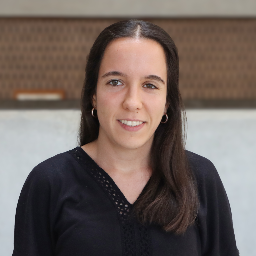
Bárbara Matos
i3S, University of Porto, Portugal

Bárbara Matos
i3S, University of Porto, Portugal
Bárbara holds a bachelor's degree in Biotechnology (2016) and a master's degree in Biochemistry (2018) at the University of Aveiro, PT. Her master's thesis aimed to explore the preventive effect of exercise training on prostate cancer-induced testicular dysfunction. In 2024, she completed her Ph.D. in Biomedicine with a thesis entitled “Developing a new approach for prostate cancer treatment: modulation of protein phosphatase 1 complexes using bioportides”. With an interdisciplinary background, Bárbara’s areas of expertise include cancer research, protein-protein interactions, peptide synthesis and therapeutics and 2D/3D cell culture. Currently, she focuses on developing innovative biomaterials based on self-assembling peptides for molecular targeted diagnosis and therapies.
ORCID >>
Personal page >>
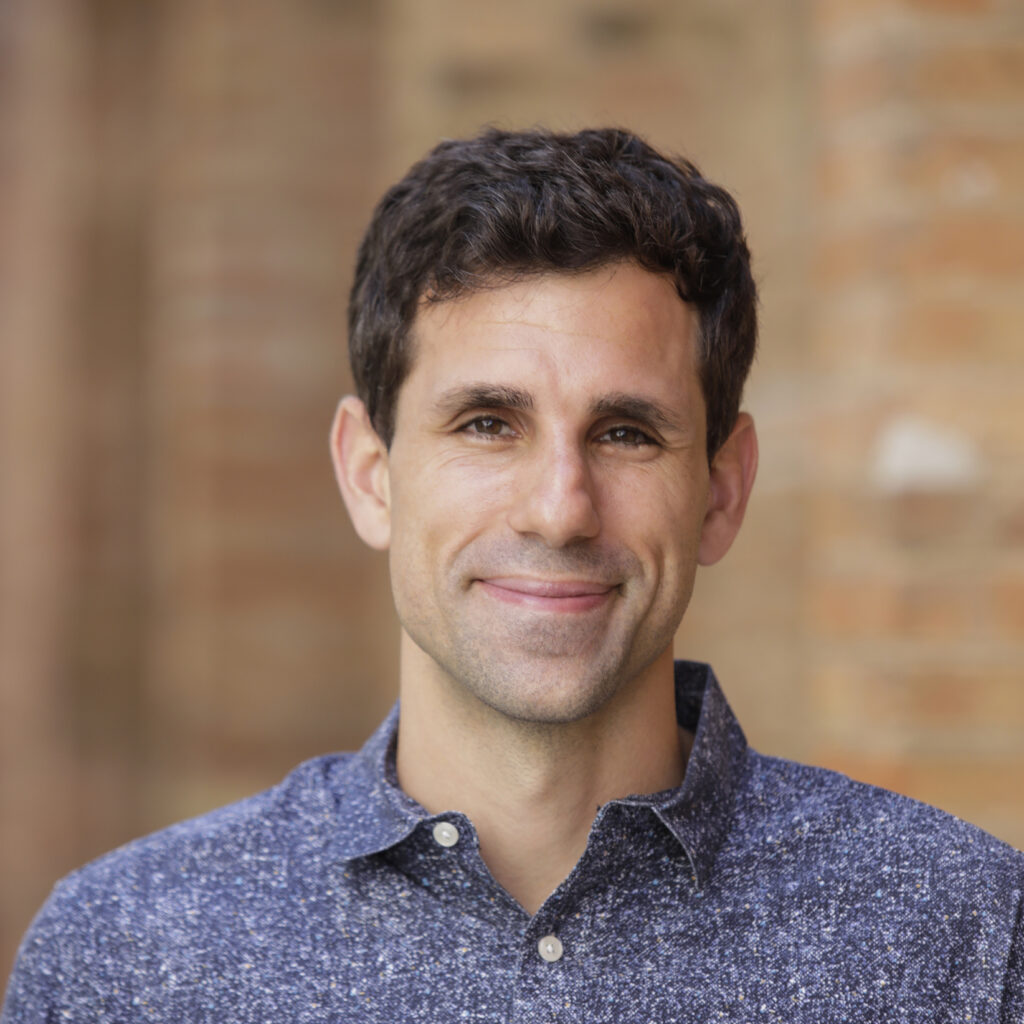
Cesar de la Fuente
University of Pennsylvania, USA

Cesar de la Fuente
University of Pennsylvania, USA
His research goal is to use the power of machines to accelerate discoveries in biology and medicine. Notably, he pioneered the development of the first computer-designed antibiotic with efficacy in animal models, demonstrating the application of AI for antibiotic discovery and helping launch this emerging field. His lab is at the forefront of developing computational methods to mine the world’s biological information, leading to the identification of over a million new antimicrobial compounds. It is estimated that the work of de la Fuente and his collaborators has multiplied the speed of antibiotic discovery by a factor of several million, saving many years of human research and reducing what once took decades of collective work to just hours.
Additional advances from his lab include reprogramming venoms into antimicrobials, developing autonomous nanorobots to treat infections, creating novel resistance-proof antimicrobial materials, and inventing rapid, low-cost diagnostic devices for COVID-19 and other infections. Prof. de la Fuente is an NIH MIRA investigator and has received recognition and research funding from numerous organizations.
De la Fuente has received over 80 national and international awards. He is an elected Fellow of the American Institute for Medical and Biological Engineering (AIMBE), becoming one of the youngest ever to be inducted.
Prof. de la Fuente has given over 300 invited lectures, including numerous Keynote and Named Lectures, and has also spoken at TEDx. He has co-authored an influential book on machine learning for drug discovery, secured multiple patents, and published over 170 peer-reviewed papers in top-tier journals such as Cell, Science, Cell Host Microbe, Nature Biomedical Engineering, Nature Communications, PNAS, ACS Nano, Nature Chemical Biology, and Advanced Materials.
ORCID >>
Personal page >>
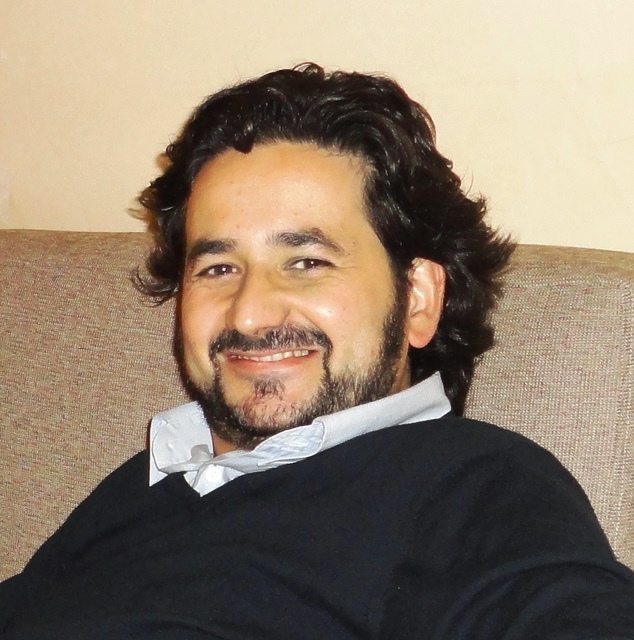
Rui Fernandes
i3S, University of Porto, Portugal

Rui Fernandes
i3S, University of Porto, Portugal
Rui graduated in Biology in 1996 at the Faculty of Sciences of the University of Porto, and is completing his PhD at the Faculty of Medicine - FMUP / i3S. His first contact with research was in 1995 with Professors Isabel Santos and Roberto Salema at Centro de Citologia Experimental. In 1996, he started working at Centro de Estudos de Paramiloidose, Hospital Santo António with Joana Palha and after he began a research project in the area of Familial Amyloidotic Polyneuropathy (FAP), with Professor Maria João Saraiva at the Institute for Molecular and Cell Biology (IBMC). In 2002, he started a position as the head of the Advance Tissue Analysis Facility (ATAF) at the Institute for Molecular and Cell Biology, currently Histology and Electron Microscopy (HEMS). This service gives support on Transmission Electronic Microscopy (TEM), and Histology. The Facility provides both the equipment and technical support to researchers needing high-level optical and TEM to tackle studies of either biological samples or in the area of material sciences. Besides the instruction for researchers, the Facility also offers training courses on master's, and PhD programs of the University of Porto, as well as guided visits to high school students. Rui Fernandes has participated in numerous studies, namely: conventional Ultrastructure; immunoelectromicroscopy; elemental analysis EDX; STEM among others. He has more than 60 publications in international peer-reviewed journals.
ORCID>>
Personal page >>
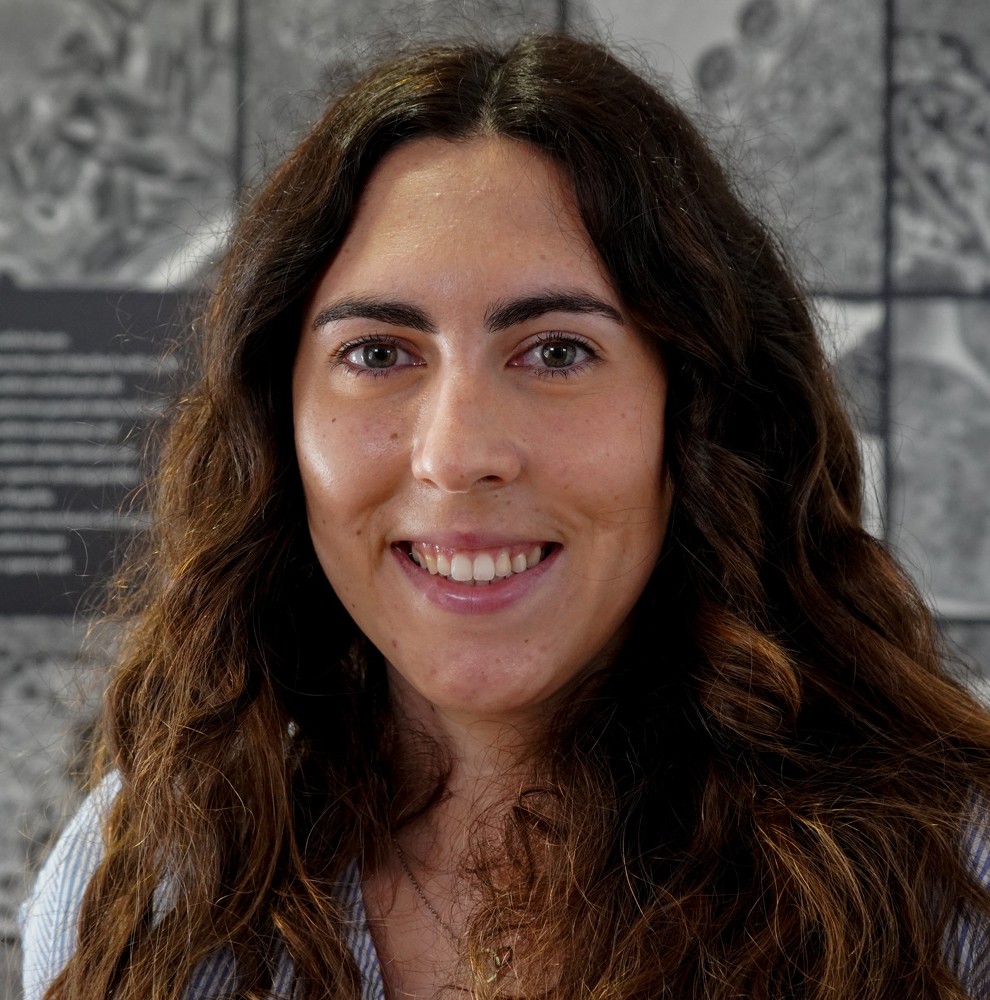
Sofia Pacheco
i3S, University of Porto, Portugal

Sofia Pacheco
i3S, University of Porto, Portugal
Graduated in Laboratory Biomedical Sciences (2017) and with a Master’s degree in Applied Health Sciences (2024) from Instituto Politécnico de Bragança. Since 2018, Sofia has developed her expertise in Electron Microscopy through roles in industrial laboratories and scientific core facilities, where she refined her technical skills. At the moment, she is a team member at HEMS core facility, where she contributes to a wide range of projects across various fields.
Program
DAY 1 | 13 October 2025
09:15 Reception of participants and registration
09:30 Welcome address and introduction to the course
09:40 Participants’ presentation
10:00 Lecture 1 “Peptides: Where Chemistry Meets Code”
William Zamora | University of Costa Rica, CR
11:00 Coffee Break
11:30 Lecture 2 “Simulating Peptides: Insights into 3D Structure, Lipophilicity, and Aggregation”
William Zamora | University of Costa Rica, CR
12:30 Lunch Break
14:00-17:30 Laboratory Session 1 “In silico session: Peptide computational representation & structural prediction”
William Zamora | University of Costa Rica, CR
DAY 2 | 14 October 2025
09:30 Lecture 3 “Understanding Enzyme Catalysis and Evolution with Computational Chemistry and Bioinformatics tools”
António Ribeiro | LAQV REQUIMTE & Faculty of Sciences University of Porto, PT
10:30 Coffee Break
11:00 Lecture 4 “Peptide-self assembly discovery with adaptive machine learning-driven generative models”
Daniela Kalafatović | University of Rijeka, HR
12:00 Lunch Break
14:00 MOBILIsE Seminar in Molecular Bioengineering
Accelerating antibiotic discovery using AI
Cesar de la Fuente | University of Pennsylvania, USA
15:30-17:30 Laboratory Session 2 “In silico session: QSPR studies & pH-dependent peptide properties.”
William Zamora | University of Costa Rica, CR
DAY 3 | 15 OCTOBER 2025
09:30 Lecture 5 “Multiparametric characterization of molecular interactions”
Frederico Ferreira-da-Silva | i3S, University of Porto, PT
10:30 Coffee Break
11:00 Lecture 6 “Biocalorimetry: the basics and practical applications of DSC and ITC”
Margarida Bastos | CIQ-UP – Research Center in Chemistry, University of Porto, PT
12:00 Lunch Break
13:10-13:40 Guided tour to the i3S facilities
Hugo Osório | i3S, Univerity of Porto
13:45-15:15 Laboratory session 3 “Sample preparation & Circular Dichroism”
Bárbara Matos | i3S, Univerity of Porto
15:00 Break
15:30-17:30 Laboratory session 4 “HPLC and TEM”
Rui Fernandes | i3S, University of Porto, Portugal
DAY 4 | 16 OCTOBER 2025
09:30 Lecture 7 “Rational design of multivalent anticoagulants”
Pedro Pereira | i3S, University of Porto, PT
10:30 Coffee Break
11:00 Lecture 8 “Fine-tuning the enzymatic degradation of peptide nanomaterials supported by rational design, in silico and experimental approaches”
Helena Azevedo| i3S, University of Porto, PT
12:00 Lunch Break
13:30-15:00 Laboratory Session 5 “Sample preparation & Circular Dichroism”
Bárbara Matos | i3S, University of Porto, Portugal
15:00 Coffee Break
15:30-17:30 Laboratory Session 6 “HPLC and TEM”
Sofia Pacheco | i3S, University of Porto, Portugal
DAY 5 | 17 OCTOBER 2025
09:30-12:30 Data analysis & Preparation of presentations
12:30 – 14:00 Lunch Break
14:00-16:30 Delivery of presentations
16:30 Course Closure
Registration
MOBILIsE Hub*/ P.CCC**
Complete - 250 €
Theory Only - 100 €
**MOBILIsE Hub (i3S, INEB, IBMC, IPATIMUP, LAQV REQUIMTE, IPO.PORTO, CICECO-UA)
*P.CCC - Porto Cancer Comprehensive Centre
Other
Complete - 300 €
Theory Only - 150 €
Registration fee includes coffee breaks and course material.
A Certificate of attendance (complete and theory only) will be assigned to participants attending all sessions.
Registration deadline (extended): 14 Sep 2025 // Payment deadline: 15 Sep 2025
Cancellation Policy
CANCELLATION BY THE PARTICIPANT: In case a registered participant wishes to cancel a paid registration or does not attend the course, the registration fee will not be refunded. Substitutions will only be made in exceptional circumstances at the discretion of the course organisers.
CANCELLATION BY THE INSTITUTION: The i3S reserves the right to cancel the course, in case of an insufficient number of participants, organisational reasons, or other unforeseeable events that render the execution of the course impossible. In case of cancellation by the organization, the fee will be refunded. In addition, i3S reserves the right to amend course times, dates or published prices if absolutely necessary. The organiser shall immediately inform the pre-registered participants of these alterations.
Any cancellation or substitution requests should be made by e-mail.




